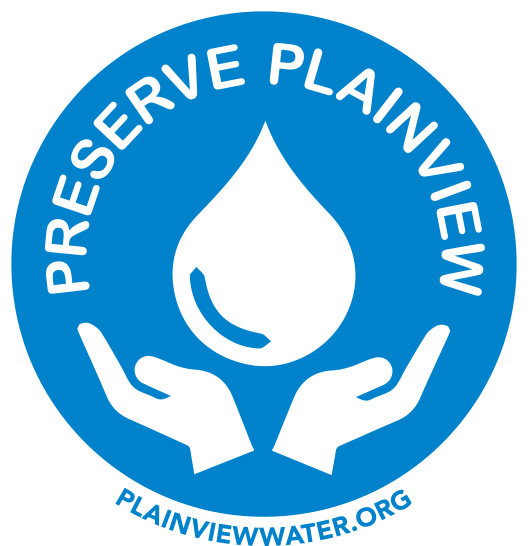Plainview Water District launched the Preserve Plainview water conservation campaign to ensure our area’s water source is healthy and sustainable. This page will serve as your resource to access information about how to conserve water and why it is important. We look forward to your participation in this ever-important campaign to preserve and protect our most precious natural resource.
Plainview Water District wants to remind you that we can all help to conserve water. And remember, conserving water around your home also helps save you money on your water bill!
As a service to our customers, we’ve provided a list of tips and techniques affecting your water usage. Take a look.
Smart Irrigation Controllers
Replacing a standard irrigation timer with a smart irrigation controller is the most effective way to save a significant amount of water and reduce your water bill during the irrigation season.
Learn more: https://www.epa.gov/watersense/irrigation-controllers
In the Garden
- Follow Nassau County’s Lawn Watering Ordinance
- Watering is prohibited between 10 a.m. and 4 p.m.
- Odd-numbered homes and businesses can only water on odd-numbered days
- Even-numbered homes and businesses can only water on even-numbered days
- Limit the amount of time you spend watering your lawn. The average lawn needs only 1 to 2 inches of water per week. If you see footprints in the grass when you walk across your lawn during the summer, it’s time to water.
- Before watering, check the weather forecast. Periods of cool, cloudy weather reduce the need to water.
- Avoid watering your lawn on windy days.
- Place mulch or peat moss around your plants to retain moisture.
- Don’t over-water the lawn; set a timer to keep track of how much watering has been done.
- Check with your local nursery for a list of low maintenance plants that require less water.
- Adjust water sprinklers so they water your plants, not the driveway or sidewalk.
- Winterize underground sprinkler systems.
- Water your lawn responsibly. See our lawn irrigation conservation tips.
Outdoors
- Disconnect all outdoor hoses before winter. Drain and store them.
- Turn off the water that leads to the outside of your house during the winter.
- Leave outside water faucets open. This allows any trapped water to expand after a freeze and prevents broken pipes during the winter.
- Cover your outdoor pool or spa to reduce evaporation during the winter. See all pool conservation tips.
- Check your pool’s walls and filtration system. Make repairs where needed.
- Use a broom or rake to clean sidewalks or driveways, instead of hosing them down.
- Wash the car with soap, water and a bucket. Use a hose with a shut-off nozzle for a quick final rinse.
Bathroom
- Turn the faucet off while you brush your teeth, wash your face or shave.
- Reduce the amount of time you spend in the shower.
- Replace standard showerheads with low-volume heads or flow restrictors.
- Don’t run water before closing the drain and filling up the bathtub.
- Change your toilets to ultra-low flush models.
- Check your toilets regularly for leaks or plumbing problems.
- Don’t use your toilet as a wastebasket or ashtray. Extra flushes waste water.
- Capture running water while waiting for the water temperature to change before your shower. The excess water can be used to water plants.
Kitchen
- Clean vegetables using water in a pan and a vegetable brush instead of under running water.
- Wait until you have a full load of dishes or laundry to run the dishwasher or washing machine. If you cannot wait for a full load to accumulate, set the water level to match the size of the load.
- Don’t let the tap run while waiting for water to cool. Fill a pitcher with drinking water from the tap and store it in the refrigerator.
- If you boil vegetables when cooking, save the water. Use it to make nutritious soups and sauces.
Winter Conservation Tips
- If water pipes are located in an unheated area of your house, cover the pipes with insulation to prevent freezing.
- Disconnect all outdoor hoses, turn off the water leading outdoors and open each outdoor faucet.
- Winterize irrigation systems by turning off the system and draining.
- Keep any fire hydrant on your property clear of snow.
- Know where your shut-off valve is located in case of an emergency.
Other Areas
- Use a sponge mop when doing household cleaning. It uses less water than a string mop. It also takes less water to keep a sponge mop clean.
- Pre-soak grills, oven racks, etc. overnight. Wash them with an abrasive scrub brush or pad. Use lots of “elbow grease” to minimize water use.
- Take steps to prevent drafts in the basement so pipes won’t freeze.
- Insulate hot water pipes to avoid wasting water while it heats.
- Check for and repair leaks. Look for leaking faucets, toilets or pipes to reduce water waste.


